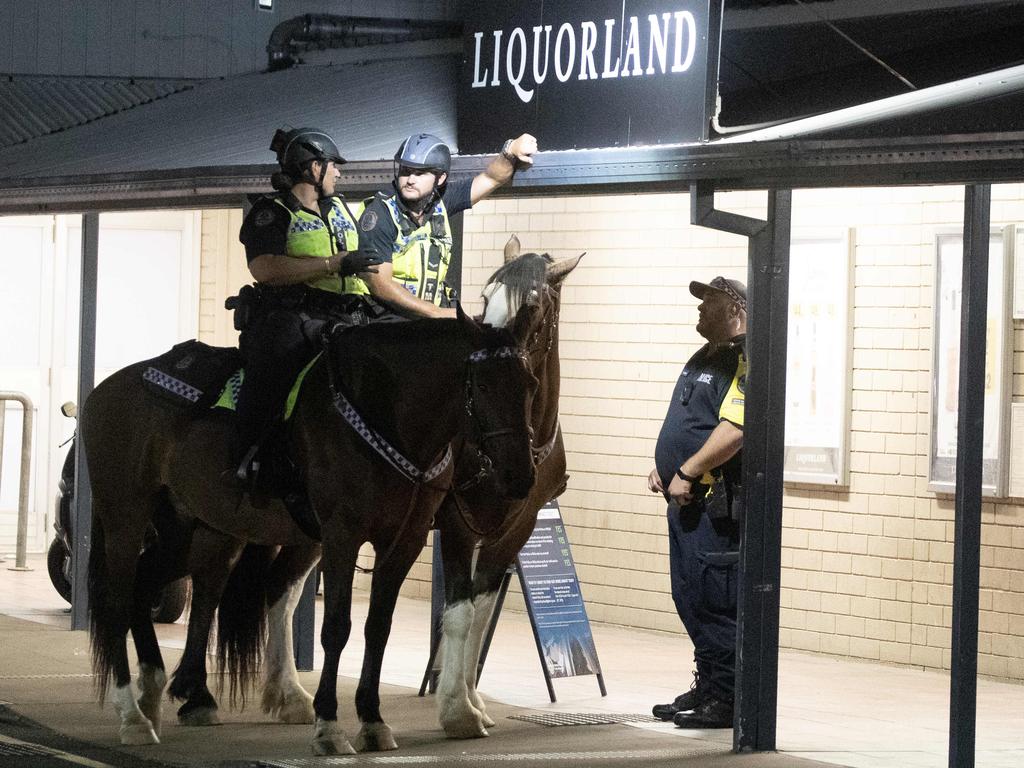Warnings of NT ‘rivers of grog’ as minimum alcohol price abolished
Health leaders, peak organisations and top doctors in the NT have labelled as disgraceful the CLP government’s plans to remove a minimum unit price for alcohol across regions that are awash in grog and violence.

Health leaders, peak organisations and top doctors in the Northern Territory have labelled as disgraceful the CLP government’s plans to remove a minimum unit price for alcohol across regions that are awash in grog and violence, warning that women will die as a result.
Despite the Minimum Unit Pricing with other measures dramatically reducing alcohol-related assaults, the NT government is planning to slash the floor price of alcohol from $1.30 to just 30 cents, making cask wine readily affordable for the heaviest drinkers amid an epidemic of alcohol-fuelled domestic violence against Aboriginal women.
An unprecedented open letter signed by virtually every health organisation across the NT, leading doctors in public hospitals, top NT Health public servants, peak Aboriginal organisations, policy and research institutes, university chiefs and scores of individual medics has warned that hospitalisations and fatal injuries are likely to spike if the MUP – one of the central planks of alcohol reform policies that have been rolled out in the Territory in recent years – is abolished. There are also plans to relax trading hours restrictions.
“If these policies are removed or relaxed, we know we will see increases in violence
against women and children, more people hospitalised because of chronic diseases
and more deaths,” the letter says. “Please engage with us, listen to us and consult with communities who experience first hand the impact of alcohol on our families.
“We know all too well what happens when decisions are quickly made without
community engagement and consideration of the evidence.”
The planned scrapping of minimum prices of alcohol by the recently elected conservative government – which came to power with a mandate to reduce crime – comes in the wake of a disastrous move between July 2022 and early 2023 to wind back dry communities provisions that restricted the intake of alcohol in remote communities, despite warnings from health groups. That policy led to an explosion of youth violence on the streets of Alice Springs and the shuttering of shops, and resulted in Anthony Albanese having to fly in to the town to address the crisis.
“At the recent National Cabinet meeting, alongside the Prime Minister and all First
Ministers, you acknowledged the role of alcohol in exacerbating violence against women
and children and committed to reviewing alcohol laws and their impact on victim-survivors of family violence,” the open letter says. “Your government’s consideration of the removal of Minimum Unit Pricing will not make women and children in the Northern Territory safer. It will increase violence and harm. Any increase in trading hours will have a similar effect.”
The letter is signed by the chiefs of the Central Australian Aboriginal Congress, the People’s Alcohol Action Coalition, the Alice Springs Sexual Assault Referral Centre, the NT Australian Medical Association, the NT Mental Health Coalition, FARE Australia, 10 senior NT Health doctors from Alice Springs Hospital including the head of ICU Paul Secombe and head of surgery Jayantha Senaratne, NT senior public servant and director of Addiction Medical Services for the Top End Christine Watson, the deputy dean of rural and remote health at Flinders University James Smith, senior researchers at the Menzies School of Health Research, scores of doctors and many others.
In 2017-18, the NT government introduced a Banned Drinker Register and MUP Territory-wide. They also rolled out Police Auxiliary Liquor Inspectors (PALIs) in three towns and restrictions on daily purchases and opening hours in Tennant Creek.
“We can’t afford to take any steps backwards,” said People’s Alcohol Action Coalition spokesperson John Boffa. “This policy is going to cause more alcohol-related assaults and more alcohol consumption and more harm. The worst case consequences are more preventable deaths – women being killed.”
A recent paper published in the International Journal of Drug Policy that examined domestic violence assaults and breaches of violence orders between 2014 and 2020 in the NT found that following the introduction of restrictions on daily purchases and opening hours in Tennant Creek, alcohol-involved assaults reduced by 92 per cent. After the introduction of minimum unit pricing, alcohol-involved assaults fell 21 per cent Territory-wide. After MUPs were introduced in Alice Springs together with Police Auxiliary Liquor Inspectors, alcohol-related assaults fell 33 per cent in that town. However, another measure that was rolled out, the banned drinkers register, resulted in large spikes in violence.
The findings mimicked that of the NT’s own analysis, with a government-commissioned evaluation in 2022 recommending the MUP should be retained.
CLP Minister for Hospitality Marie-Clare Boothby said the party took the policy of scrapping the floor price to the recent election and “received a resounding mandate to deliver on our commitments”. She said people had switched from cask wine to higher alcohol content products including spirits, unleashing violence.
“That is not a better outcome for the community, chronically affected alcoholics or their families. We make no apologies for delivering on the mandate that Territorians voted us to do in the August 24 election.”
Cassandra Wright, program lead of alcohol and other drugs at the Menzies School of Health Research, said moves to roll back the MUP were contrary to evidence.
“Australia occasionally pays attention to what’s happening with alcohol in the NT, but only when there’s attention driven by political crises,” Dr Wright said. “But actually, this is happening here for Territorians every single day; the rates of alcohol harms, including health and social outcomes, are so much higher than anywhere else in the country, and even economically, we’re paying more than $1.4bn per year to respond to alcohol harms here.
“We really need effective policies more than anywhere else in the country.”





